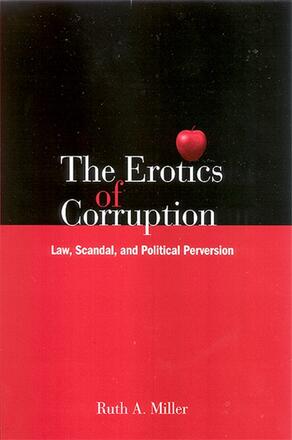
The Erotics of Corruption
Law, Scandal, and Political Perversion
Alternative formats available from:
A provocative retelling of the story of political corruption in the modern period.
Description
In this provocative retelling of the story of political corruption in the modern period, Ruth A. Miller argues that narratives of political corruption rely upon an explicitly pornographic rhetoric and have been instrumental in carving out lawless or exceptional space. Drawing upon an extensive and wide-ranging literature, she examines corruption, the erotic, and legal exceptionalism as they appear in media representations of Saddam Hussein as "corrupt leader," nineteenth-century political cartoons, Pier Pasolini's film Salo, Ernst Kantorowicz's theorization of the body politic, Giorgio Agamben's analysis of biopolitics, and Achille Mbembe's discussion of the postcolony. Miller comments on both the erotic nature of the state of exception and colonial or postcolonial manifestations of it, and presents a new voice in ongoing conversations about law, violence, and sexuality in the contemporary world.
Ruth A. Miller is Assistant Professor of History at the University of Massachusetts at Boston. She is the author of The Limits of Bodily Integrity: Abortion, Adultery, and Rape Legislation in Comparative Perspective and Legislating Authority: Sin and Crime in the Ottoman Empire and Turkey.
Reviews
"…recommended … for professionals working on issues of corruption and eroticism." — CHOICE
"This beautifully conceived, well-researched book provides a fresh and unique look at the timely topic of corruption. As such, it departs markedly from the current literature. It is rare that one takes a journey into not only areas previously unconsidered but also areas largely unimagined. The subfield of corruption has always struggled with basic concepts, and The Erotics of Corruption plays with that problematic in a totally different way, first by employing discourse analysis, and, second, by situating the narrative within a larger context. Scholars will greatly benefit from the book's insights and fresh perspective, and it will force them to think more critically about their own approaches." — Stephen D. Morris, author of Gringolandia: Mexican Identity and Perceptions of the United States